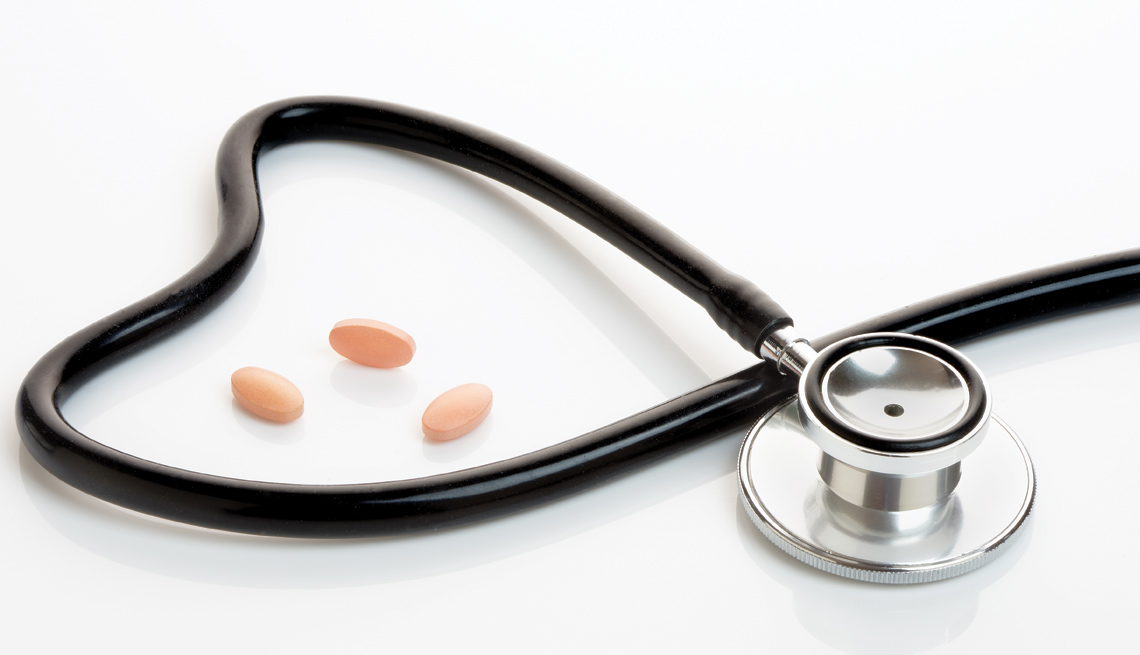Have High Cholesterol? Why It’s Important to Manage It, and 3 Everyday Ways to Do So
See what’s possible when YOU have a plan
If you’re one of the more than 100 million adults in America with high cholesterol, you know that staying on top of your treatment regimen – which often includes a healthy diet and lifestyle along with a statin medication – is not always top of mind. You can’t “see or feel” high cholesterol like some other medical conditions, so it may be easy to ignore, but doing so can have dire health consequences. Left untreated, high cholesterol can cause a thick, hard buildup within the walls of the arteries that may eventually lead to a heart attack or stroke, two of the leading causes of death in the U.S. Is that a risk you’re willing to take?
You’ve planned well for retirement so that you can enjoy spending more time with your grandchildren, traveling, volunteering or perfecting your hobby – managing your high cholesterol should be part of this plan, too. Luckily, high cholesterol is manageable with medication and lifestyle modifications. Since September is National Cholesterol Education Month, it’s the perfect time to get in the know about your high cholesterol and the tools you need to help manage it every single day. Just take these three easy steps!
1. Maintain Your Statin Treatment Plan
Your doctor has likely prescribed a statin, which is a medication that’s proven to be effective in managing high cholesterol. Statins work by inhibiting an enzyme important in cholesterol synthesis in the liver, helping to reduce the production of cholesterol and ultimately remove it from the bloodstream. Importantly, there are several different statins available, and the way in which the body metabolizes each statin varies from person to person. That’s why it’s vital to work with your doctor to not only begin a statin regimen if needed but to find the one that’s right for your individualized needs.
These key factors can help determine which statin may be right for YOU:
- Other medical conditions you have or are at risk for
- Your medical history
- Medications or supplements you take
- Your age and ethnicity
- Certain foods that make up your diet
A commonly cited reason for stopping statin treatment is side effects. These may result from interactions between your statin and other medications you’re taking, or the statin you’ve been prescribed just may not be the right one for you. If you’re experiencing any issues while taking a statin, speak up to your doctor. Side effects can often be resolved by switching to a different statin or adjusting your dosage.
If you’ve stopped taking your statin medication without first discussing with your doctor, you’re putting yourself and your future at risk. Remember -- having a personal plan to manage your cholesterol is like an insurance policy to stay heart healthy. Knowing you have options in your statin treatment plan is power! Always consult your doctor before you stop or reduce your statin medication.
2. Strive to Make One Healthier Lifestyle Choice Every Day
Statins are just one piece of the puzzle in the management of your high cholesterol; most doctors recommend a heart-healthy diet and regular exercise as part of a holistic treatment plan. If this intimidates you, try starting small. Aim to make one healthy diet or exercise choice every day, and build from there. For instance, if you typically eat a bagel with jelly every morning for breakfast, make a commitment to choose heart-healthy oatmeal or scrambled egg whites instead. You may be surprised at how easy it is to change your lifestyle when you take one step at a time.
How to maintain a heart-healthy diet
- Choose foods high in soluble fiber - oatmeal, beans, apples and broccoli
- Stay away from fried foods and instead try broiling, grilling, roasting or poaching
- Avoid empty calories and steer clear of foods that are high in sugar; instead, fill up on foods that contain essential vitamins and minerals
- Replace high-carbohydrate foods with rich monounsaturated fats like nuts, avocados and olive oil
- Avoid saturated fats, which are found in mainly in animal-based foods, and trans fats found in processed foods
Get regular exercise
- Make time to exercise. The goal is to exercise for about 40 minutes, 3-4 times a week. Start out slowly. If you can do only 10 or 15 minutes at first, that’s okay. You’ll be surprised at how quickly you can increase your activity when you stick to this healthy habit.
- Make exercise fun. Mix it up! Try a few different things – go for a walk, garden or try something new like kayaking or yoga. Make it a family-fun activity like hiking, swimming or hide-and-seek with the grandkids. When it’s fun, it doesn’t feel like work!
3. Use Your Voice - Talk to Your Doctor
Developing a relationship with your doctor is essential, and the way to do it is by having honest, heart-to-heart conversations. Prepare for your next visit ahead of time, so you don’t become flustered or forget what’s important to you. Write down your questions – note changes in your overall health, make a list of your other medications and supplements, and jot down any side effects you may be experiencing with your statin. Share your concerns.
Remember, there is only one you, and you are your own best advocate for protecting your heart health. Developing a healthier lifestyle and sticking to your medication is essential - partner with your doctor to ensure you’re on a statin that fits your unique needs. You’ve got this!





